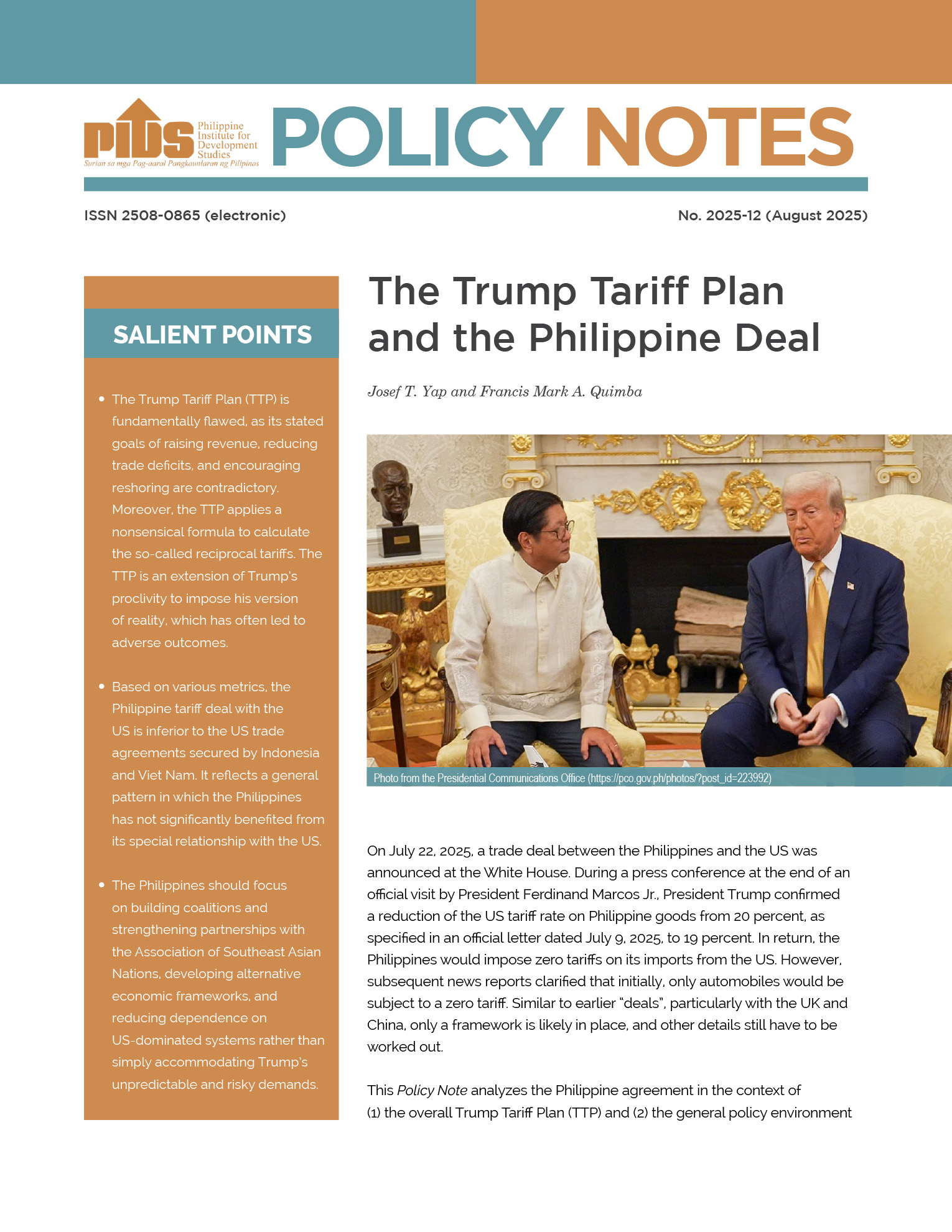Domestic tax system restructuring is viewed by many sectors as an important complement to the tariff reform programs. In this light, the study analyzes the interaction of indirect taxes with the tariff system and how it affects the goods market and eventually, the effective protection rate. Revenue and equity implications of other indirect tax schemes are also examined. Results demonstrate that difference in timing of the tax payments for imported and domestically produced goods serves as an added protection. The same cannot be said in the case of intermediate goods. Based on the empirical findings, several sources of protection are identified.












